Southern Baptists Should Prioritize Substantive Unity Secured Through Open Discussion Over Sentimental Unity that Sweeps Differences Under the Rug
Around this time every year, the planning and communication teams for the Southern Baptist Convention’s (SBC) Annual Meeting seem to make a concerted effort to urge “UNITY” or “TOGETHERNESS.” For example, see this recent post on X from the SBC Executive Committee account:
Last year, the theme “One Mind, One Voice” (citing Romans 15:5-6) called for harmony and collective praise for God. The theme was reinforced by Bart Barber’s presidential address, advocating grace amid disagreements, and Dean Inserra’s convention sermon similarly urged messengers to avoid the “side streets” of “poor doctrine” and “poor culture.”[1]
From my perspective, the annual call for unity leading up to and during these meetings seems misplaced. Messengers attend because they are already united in their cooperative efforts: missions, evangelism, church planting, and seminary training (each with a Baptist distinctive).
The annual meeting should not suppress disagreements, nor should SBC leaders try to avoid public debates. Instead, SBC leaders should embrace the opportunity to meaningfully address concerns and to recenter SBC churches and entities according to shared goals.
The 2025 SBC annual meeting in Dallas will likely feature at least three critical points of contention. I think these issues, both individually and collectively, highlight the need for substantive unity over the sentimental kind.
Ethics and Religious Liberty Commission
The Ethics and Religious Liberty Commission (ERLC) is under increasing scrutiny and has been for some time now.
Motions to abolish the ERLC were made by Joshua Scruggs in 2022 and Tom Ascol in 2024, with Ascol’s motion garnering an estimated 35%-40% support in Indianapolis. While many Southern Baptists do not wish to dissolve the ERLC (at least from my perspective), an increasing number are concerned about its direction. Publicly articulated frustration largely focuses on the influence of politically left-leaning groups on the ERLC.
Sam Webb’s questions on Twitter/X represent some of these concerns.
Why did the ERLC allocate $250,000 to the Abuse Reform Implementation Task Force? Why did it oppose pro-life legislation in states like Louisiana? What explains the brief firing and reinstatement of ERLC President Brent Leatherwood in July 2024? These are fair questions that deserve honest answers.
Other questions linger as well. What relationships does the ERLC have with legislators in Washington, D.C.? What policies or legislation has the ERLC meaningfully influenced in the last year? Has the ERLC received funding from or agreed to act for left-leaning groups?
These issues must be addressed openly at the 2025 meeting. If there is a motion to abolish the ERLC, I will vote for it. And if there aren’t substantive answers to questions like the ones listed above, and if there aren’t meaningful changes to the direction of the ERLC over the next several months, then (given the opportunity) I will vote for its dissolution in Orlando in 2026.[2]
The Law Amendment
The “Law Amendment” was first proposed by Mike Law in 2022. His motion to amend the SBC constitution aimed to ensure that only churches with male pastors or elders, as qualified by Scripture, are in friendly cooperation with the SBC. The amendment passed its first vote in 2023, after Juan Sanchez offered a friendly amendment to adjust the wording. However, the vote fell just short of the second consecutive two-thirds majority in 2024, a requirement for constitutional amendments.
Leading up to the 2024 annual meeting, opponents launched a comprehensive communications campaign against the Law Amendment. Many claimed the Baptist Faith and Message (BF&M) and existing constitutional language were sufficient for the Credentials Committee to address churches with female pastors. Yet, the committee’s past inaction and request for clarity contradicted this argument.
After the 2024 annual meeting, the argument was embarrassingly exposed as naïve (at best) when the Credentials Committee failed to act yet again, deciding that NewSpring Church (where Meredith Knox serves as a “teaching pastor”) was in friendly cooperation with the SBC.[3]
Juan Sanchez has announced plans to reintroduce something similar to the Law Amendment at the meeting in Dallas.
If he does, then his motion will require two super-majority votes, one in 2026 and another in 2027. This debate over how to clarify the SBC’s complementarian convictions must be settled.
I argued publicly in favor of passing the Law Amendment in 2024, and the same points remain relevant. Even if one is not convinced that a constitutional amendment is best, one can hardly argue that such a thing is not needed.
990 Level Financial Transparency
Financial transparency also remains a debated issue among many Southern Baptists. In 2023, Rhett Burns proposed what became known as the “990 Amendment.” Burns’s motion would have required SBC entities to disclose financial information equivalent to an IRS Form 990. The Executive Committee declined to bring this motion to a vote in 2024, despite Burns’s attempt to force it to the floor, which failed the procedural vote.
The Executive Committee has since promised enhanced transparency measures for 2025, but Burns has argued that these proposals are “less transparent than the current plan.” And Pastor Willy Rice, a former NAMB trustee, has recently encouraged the powers that be in the SBC to “let the people vote on it.”
Additionally, pastor Colin Smothers has emphasized that trust and doctrinal alignment are foundational for the Cooperative Program (CP), which has seen reduced giving in recent years.
Smothers believes this is (at least in part) due to perceived financial mismanagement and doctrinal drift at entities like the ERLC and the North American Missions Board (NAMB). Smothers warns that the CP will likely continue to struggle unless these issues are addressed.
Conclusion
In my local church, genuine unity requires substance, not mere sentiment. Sentiment is fine, and it is even desirable when things are going well. When trouble arises, however, sentiment is a mere distraction, and many church members can become frustrated by the obfuscation of sentiment over substance.
The same is true for parachurch organizations like the SBC Executive Committee, the ERLC, NAMB, and the International Missions Board (IMB). Genuine unity makes sentiment all the more compelling, but a lack of unity exposes sentiment for the shallow substitute it is.
Over the past decade, misuse of funds, doctrinal confusion, and mission drift have eroded trust in SBC leaders and some of its entities. SBC leaders must champion the Baptist Faith and Message, address financial concerns publicly and openly, and align themselves and the institutions under their influence with the convictions of the SBC’s base.
The churches that contribute to fund the SBC’s entities deserve more than slogans and sentiment. We deserve biblically grounded and substantive unity in doctrine and practice—at every level of the SBC.
The 2025 annual meeting is the opportunity to tackle these debates head-on. I hope the SBC leaders will aim this year to build real unity on a foundation of shared doctrine and accountability, not superficial calls for togetherness.
[1] “Annual of the 2024 Southern Baptist Convention.” https://www.sbc.net/wp-content/uploads/2024/09/2024-SBC-Annual.pdf. pp. 147-148.
[2] I think David Mitzenmacher’s “A Roadmap for Reforming the ERLC” offers some good actions. https://christoverall.com/article/longform/a-roadmap-for-reforming-the-erlc/
[3] See the church’s webpage here: https://newspring.cc/staff/teaching-team
Share This Story

